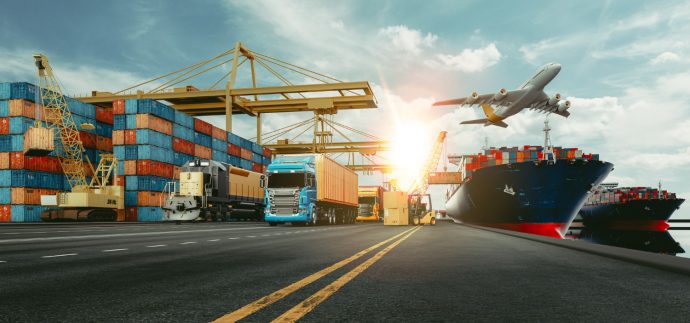In May, the World Health Organisation finally declared that Covid-19 no longer represented a ‘global health emergency’.
Since the beginning of this year, many countries around the world had already adopted an endemic approach to the pandemic. That included China, which had previously exercised a ‘Zero-Covid’ approach in a bid to completely eradicate Covid within its borders. In early 2023, that changed as it re-opened to the world, welcoming trade and tourists alike.
The impact on global trade of the strict restrictions imposed by the world’s largest market and second-biggest economy cannot be underplayed – not least on the inevitable domino effect on global supply chains. In the early months of the pandemic, when trade and the movement of people were tightly controlled, bottlenecks and delays were experienced the world over. Logistics services had to find a way of ensuring effective operations while accepting restrictions as a reality of life in the time of Covid.

Tackling uncertainties
The shipping and transportation industry, in particular, faced numerous challenges during this period, including port closures, supply chain disruptions, and ever-changing regulations.
“The pandemic brought unprecedented challenges for shipping companies, ports, logistics providers and many more involved in the country’s supply chain. Limited truck access caused containers to pile up and ship transfers to slow down,” says Simon Xu, GAC China’s Managing Director.

“Our customers faced uncertainties surrounding China’s ‘stop-start’ approach to lockdowns and what that meant for their vessels, cargoes and crews.
GAC also lead the way in supporting China’s logistics sector throughout the pandemic by drawing on the regional expertise and experience of its offices across the country and beyond throughout the wider Asia region.
The company was quick to respond to the outbreak from early 2020, working closely with Chinese authorities to ensure the smooth and safe operation of ports and helping to keep vital supply chains moving. This included providing personal protective equipment (PPE) and implementing strict health and safety protocols at its facilities to protect both staff and clients.
GAC was also directly involved in transporting medical supplies and PPE amid rising demand in China. This again involved working alongside multiple stakeholders, including manufacturers, airlines and government agencies.
Aside from straightforward logistical support, GAC offered a range of other valuable services. These included remote marine surveys, enabling customers to continue conducting essential inspections without the need for physical attendance. Recognising the situation and adopting virtual training sessions for staff and clients was also essential to ensuring transparency and knowledge of the latest regulations.
Logistics crisis management
With China now emerging from lockdown restrictions, GAC has established itself as an industry expert in logistics crisis management and, by extension, has futureproofed its offerings and services to the Chinese market should another worldwide supply chain challenge arise.
“We learnt several lessons from the pandemic,” says Simon. “Not least, the importance of ensuring we could be flexible to the needs of the customer to keep their vessels and cargoes moving in the most effective and timely manner possible no matter the circumstances.
GAC is well-positioned to continue supporting the shipping industry as pandemic emergency response becomes less of a concern for national and regional authorities. Regional expertise, combined with its commitment to innovation and customer service, makes GAC an essential partner for clients in China and the wider Asia region.
